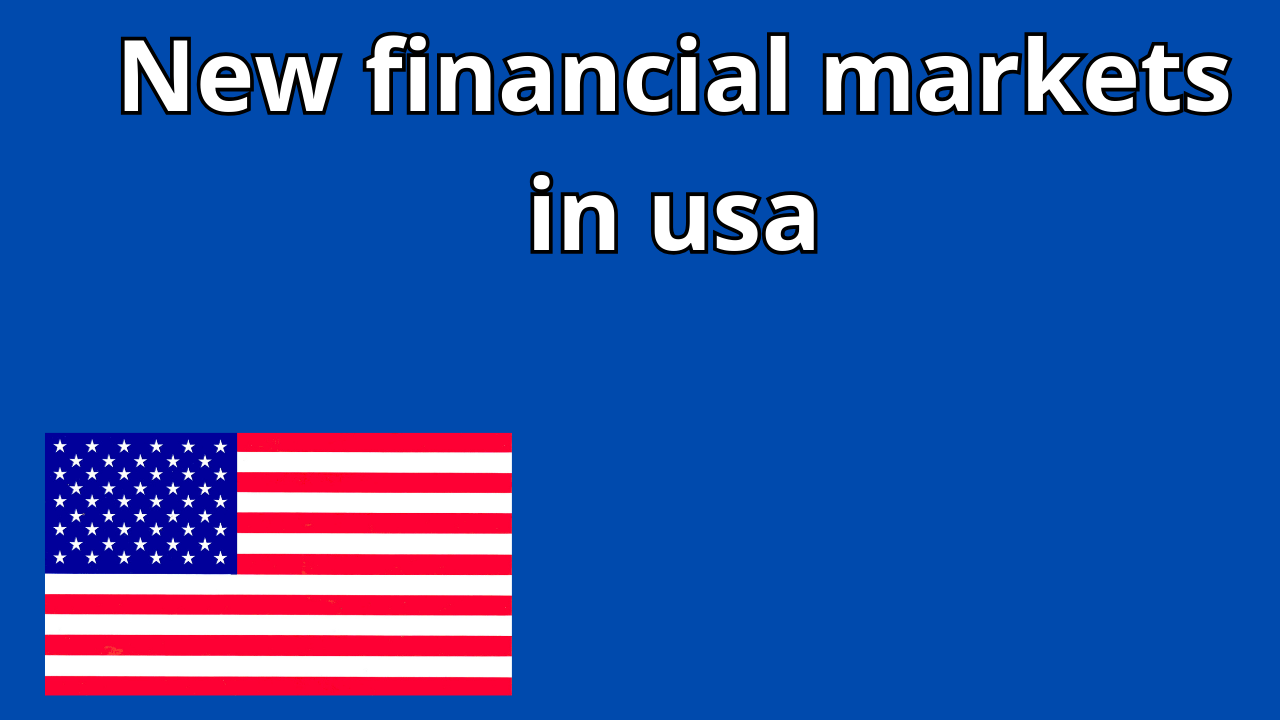New financial markets in usa
The financial landscape in the United States continues to evolve, driven by technological advancements, changing consumer behaviors, and regulatory developments. As of recent years, several new financial markets and trends have emerged, creating opportunities for investors, businesses, and institutions. Here’s an overview of some of the key areas:
1. Cryptocurrency and Blockchain Technology
- Cryptocurrencies like Bitcoin, Ethereum, and newer altcoins have gained significant traction as alternative investment assets.
- Blockchain technology is being leveraged for decentralized finance (DeFi), tokenization of assets, and secure digital transactions.
- Regulatory frameworks around cryptocurrency are evolving, leading to increased institutional adoption.
2. ESG Investing (Environmental, Social, and Governance)
- ESG-focused financial products and investment funds have seen rapid growth as investors prioritize sustainability and corporate responsibility.
- Green bonds, carbon markets, and renewable energy investments are becoming mainstream.
- Companies are aligning their strategies with ESG goals, creating new opportunities for investors to support sustainable initiatives.
3. Fintech Innovations
- The rise of fintech startups has disrupted traditional financial services, offering digital banking, peer-to-peer lending, and robo-advisory platforms.
- Payment systems, such as contactless payments and digital wallets like Venmo, Cash App, and Apple Pay, are reshaping consumer behavior.
- Embedded finance, where financial services are integrated into non-financial platforms, is gaining popularity.
4. SPACs (Special Purpose Acquisition Companies)
- SPACs have emerged as a popular alternative to traditional IPOs, allowing companies to go public more efficiently.
- Although the SPAC market has faced regulatory scrutiny, it remains a significant avenue for raising capital.
5. Decentralized Finance (DeFi)
- DeFi platforms are transforming traditional financial services by enabling decentralized lending, borrowing, and trading without intermediaries.
- Smart contracts on blockchain networks facilitate secure and transparent transactions.
6. Alternative Investments
- Investors are increasingly exploring alternative assets like private equity, venture capital, real estate crowdfunding, and collectibles (e.g., art, NFTs, and rare memorabilia).
- Fractional ownership models are making these investments more accessible to smaller investors.
7. Carbon and Climate Markets
- The push for carbon neutrality has led to the creation of carbon credits and trading marketplaces.
- Climate-focused investments, such as renewable energy and sustainable agriculture, are gaining traction.
8. Digital Asset Exchanges
- Beyond cryptocurrencies, digital asset exchanges are expanding to include tokenized securities, real estate, and other asset classes.
- These platforms offer increased liquidity and accessibility for traditionally illiquid assets.
9. Regenerative Finance (ReFi)
- ReFi focuses on using financial systems to regenerate natural ecosystems and communities.
- Initiatives like biodiversity credits and nature-based solutions are creating new financial markets.
10. Healthcare and Biotech Investments
- Advances in biotechnology, telehealth, and medical research are driving significant investment in the healthcare sector.
- Venture capital is increasingly flowing into startups focused on innovative treatments and digital health solutions.
The emergence of these new financial markets underscores the importance of staying informed and adaptable as the financial industry continues to innovate. Whether you’re an investor, entrepreneur, or financial professional, exploring these opportunities can provide a competitive edge in the evolving economic landscape.



